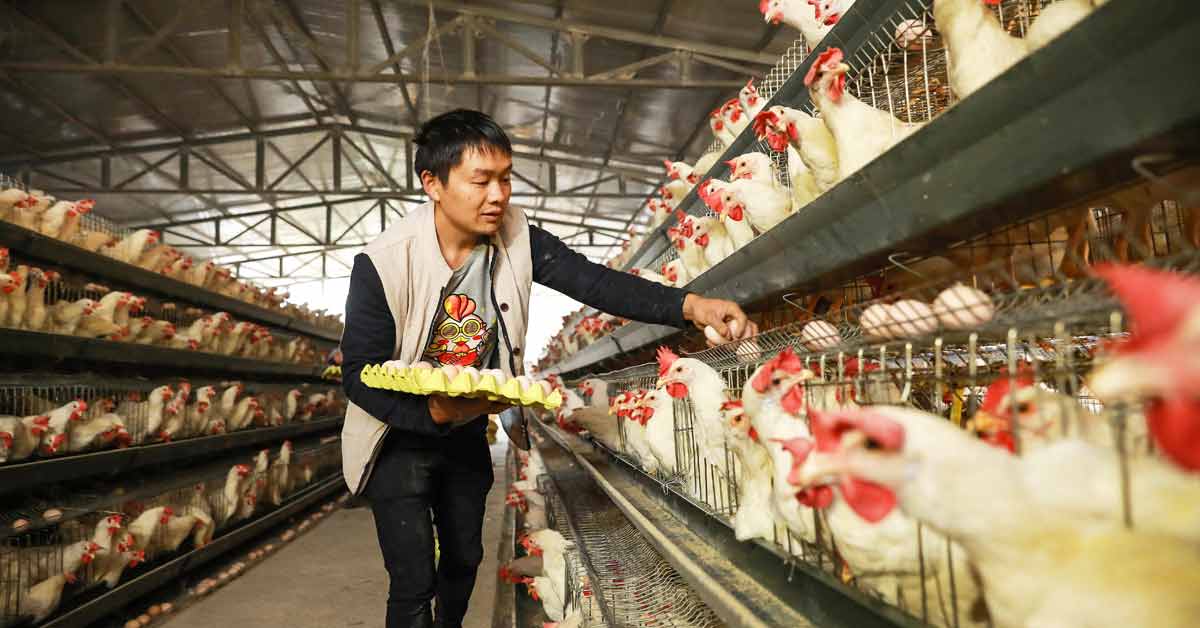China reported the world's first human infection of the H10N3 bird flu strain on Tuesday but said the risk of it spreading widely among people was low.
A 41-year-old man was admitted to hospital with fever symptoms in the eastern city of Zhenjiang on April 28 and was diagnosed with H10N3 a month later, China's National Health Commission (NHC) said in an online statement.
"The risk of large-scale spread is extremely low," the NHC said, adding that the man was in a stable condition and his close contacts had reported no "abnormalities."
It described H10N3 as low pathogenic – less likely to cause death or severe illness – in birds.
The NHC said there had been no human cases of H10N3 previously reported in the world.
Several strains of bird flu have been found among animals in China but mass outbreaks in humans are rare.
The last human epidemic of bird flu in China occurred in late 2016 to 2017, with the H7N9 virus.
The H7N9 has infected 1,668 people and claimed 616 lives since 2013, according to the United Nations' (UN) Food and Agriculture Organization (FAO).
Following recent avian flu outbreaks in Africa and Eurasia, the head of China's Centre for Disease Control and Prevention last week urged stricter surveillance in poultry farms, markets and wild birds.
COVID-19 was first detected at a food and animal market in the central Chinese city of Wuhan in late 2019.
Joint Call For Vaccine Equality
World leaders must make a "new commitment" to a more equal distribution of coronavirus vaccines to bring the pandemic under control, the heads of four major global organisations said on Tuesday.
Their joint rallying cry comes as concerns rise that vaccine inequality between wealthy and poor nations is further complicating and prolonging a pandemic that has killed more than 3.5 million people globally.
Writing in the Washington Post on Tuesday, the heads of the World Health Organization (WHO), World Bank, International Monetary Fund (IMF) and World Trade Organization (WTO) blamed the gap in vaccination programs for the emergence of virus variants that have fuelled fresh outbreaks in the developing world.
"It has become abundantly clear that there will be no broad-based recovery from the COVID-19 pandemic without an end to the health crisis. Access to vaccination is key to both," they said.
"Ending the pandemic is possible – and requires global action now."
The joint op-ed was penned by IMF managing director Kristalina Georgieva, WHO director general Tedros Adhanom Ghebreyesus, World Bank president David Malpas, and WTO director general Ngozi Okonjo-Iweala.
They called on the Group of Seven (G7) wealthy democracies to agree on a "stepped-up coordinated strategy, backed by new financing, to vaccinate the world" at their next meeting in the United Kingdom (UK) later this month.
The officials recommended the G7 agrees to fund a US$50 billion plan already put forward by the IMF to accelerate the end of the pandemic.
The WHO had already decried vaccine inequality as "grotesque" in March and its chief Tedros last month asked vaccine-wealthy nations to refrain from giving shots to children and adolescents and instead donate those doses to other nations.
UN-backed program COVAX is meant to share vaccines with the poorest nations.
But wealthy countries effectively elbowed out COVAX in the early stages of procurement, striking their own deals with drug manufacturers and taking the overwhelming share of the more than 1.8 billion doses of vaccine that have already been injected worldwide.
The G7 member countries, which met in central London under tight coronavirus restrictions last month, committed to financially support COVAX.
But there was no immediate announcement on fresh funding to improve access to vaccines, despite repeated calls for the group to do more to help poorer countries.
Related Articles:
